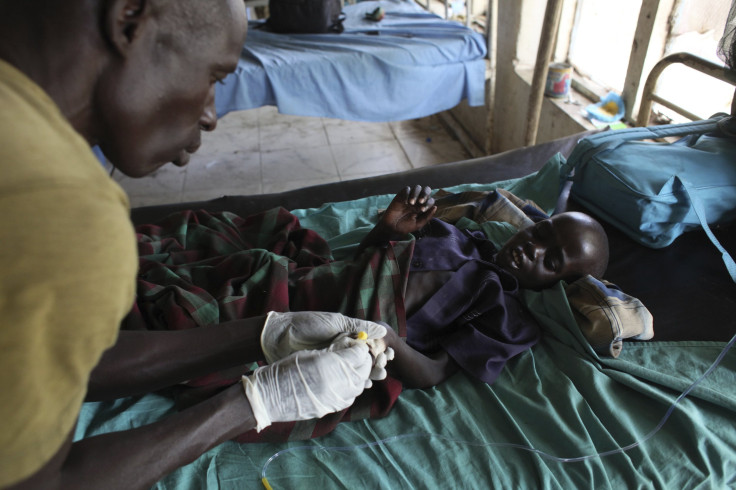GlaxoSmithKline Develops World’s First Effective Malaria Vaccine; Eyes African Market By End Of 2015

GlaxoSmithKline secured approval from the European Medicines Agency, or EMA, for Mosquirix. It is the world's first medicine that works against the parasitic infection of malaria in humans. The vaccine is expected to be available in the African market at the end of 2015.
The vaccine, according to GSK, was designed specifically to combat malaria infection in children in Africa, one of the areas most affected by malaria, and help protect against infection with the Plasmodium falciparum parasite, the deadliest of the four parasite species that infect humans with malaria. Mosquirix, also called RTS,S, helps to boost the immune system to fight and prevent the parasite against the first stages of infection on the liver as the first organ to be affected by the parasite; enters bloodstreams and affects the blood cells.
Malaria kills around 584,000 people a year worldwide, mostly children under five in Africa, according to GSK.
The vaccine is already safe for use in children aged six weeks to 17 months, EMA, said. Following the approval of the positive effect of the vaccine, the WHO, with other national regulatory authorities, will use the results to formulate a policy recommendation on use of the vaccine in national immunisation programmes.
At the end of the trial, 39 percent of cases of infections were reduced after giving to a select group of children aged five to 17 months four doses of the vaccine over a four-year follow-up period, and by 27 percent over a three-year follow-up period in infants. Although the estimated percentage shows the effectivity and safety of the vaccine, experts were not satisfied with the result, reports said.
However, according to Andrew Witty, CEO of GlaxoSmithKline, the positive review does not mean that the vaccine is approved for use, but the Mosquirix vaccine may help control the impact of malaria on children in African communities in the future.
The effectiveness of the vaccine weakened over time during the trial period. But a booster shot was produced essential to work with the vaccine to trigger the immune system. GSK said without the booster, the vaccine would not cut the rate of severe malaria over the trial period.
The vaccine, if granted marketing authorisation by WHO, will be available in the market of countries in sub-Saharan Africa on a "country-by-country basis," GSK stated. Upon approval, each countries could begin using Mosquirix through their universal immunisation programmes under the regulatory and policy decisions of national regulatory authorities, including WHO.
To contact the writer, email: darwin.malicdem@ibtimes.tunemedia.biz





















